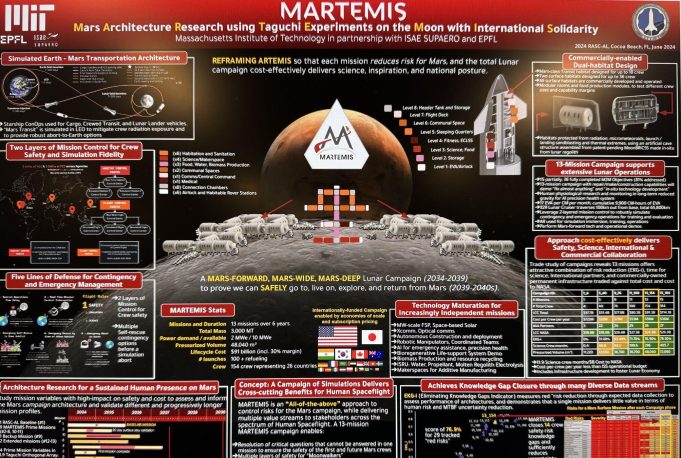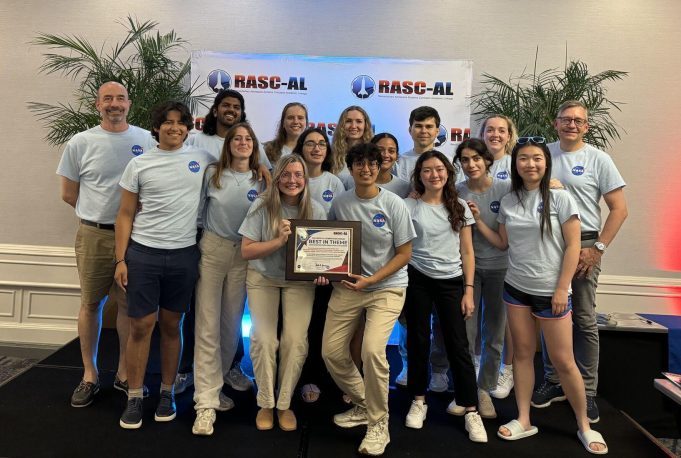Team “MARTEMIS” wins Best in Theme at NASA’s 2024 RASC-AL competition
The MIT “MARTEMIS” team, in partnership with the Swiss Federal Institute of Technology – Lausanne and National Higher French Institute of Aeronautics and Space, won “Best in Theme: Long Duration Mars Simulation at the Moon” at NASA’s 2024 RASC-AL competition. Their project “MARTEMIS: Mars Architecture Research using Taguchi Experiments on the Moon with International Solidarity” proposed an ambitious exploration campaign for using the Moon as a training ground for Mars.
“MARTEMIS is a concept for a sustained lunar campaign during the 2030’s, designed to deliver real and substantial risk reduction for the first crewed Mars mission, while also minimizing real risks to the lunar crews,” says faculty advisor George Lordos. “In addition, the campaign delivers hundreds of crew-months of lunar surface science and exploration, the participation of crews from 26 countries representing all continents, and a seamless transition to future commercial operations for lunar permanence in the 2040’s and onwards.”
“Working with a large group of multi-disciplinary team members on an ambitious project topic was amazing,” says team lead Palak Patel. With team members from universities in Switzerland and France, the project focused on a need for international collaboration in large-scale projects. “The team did excellent and we are very happy to have won the Best in Theme award!”
Congratulations to team leads Lanie McKinney and Palak Patel, along with team members Clara Ma, Evan King, Alisa Webb, Annika Thomas, Shaan Jagani, Daniel Rojas, Michal Delkowski, Elizabeth Romero, Léonie Gasteiner, Anna Tretiakova, Mollie Johnson, Fatemeh Tavakoli, Nicole Chan, Andy Eskenazi, Estelle Martin, Lorenzo Nardi, Elena López-Contreras González, Veronica Orlandi, and faculty advisors Prof. Olivier de Weck and George Lordos. The team extends their special thanks to academic and industry advisors Prof. Jeffrey Hoffman, Madelyn Hoying, Vsevolod Peysakhovich, Andreas Osterwalder, Alexandros Lordos, Martin Heyne, and Alexander Miller.




